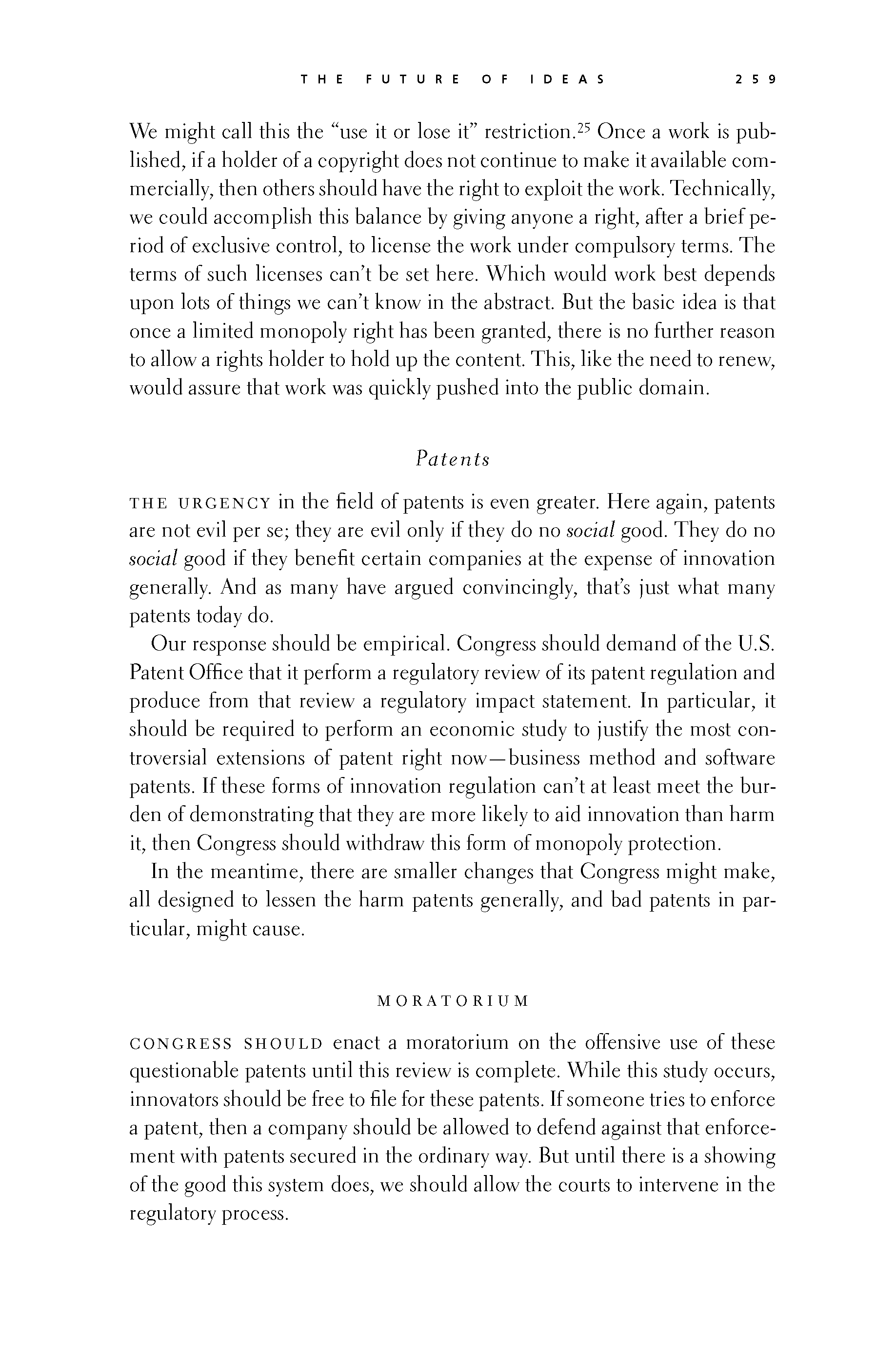 p258 _
-chap- _
toc-1 _
p259w _
toc-2 _
+chap+ _
p260
p258 _
-chap- _
toc-1 _
p259w _
toc-2 _
+chap+ _
p260
We might call this the "use it or lose it" restriction.[14-25] Once a work is pub-
lished, if a holder of a copyright does not continue to make it available com-
mercially, then others should have the right to exploit the work. Technically,
we could accomplish this balance by giving anyone a right, after a brief pe-
riod of exclusive control, to license the work under compulsory terms. The
terms of such licenses can't be set here. Which would work best depends
upon lots of things we can't know in the abstract. But the basic idea is that
once a limited monopoly right has been granted, there is no further reason
to allow a rights holder to hold up the content. This, like the need to renew,
would assure that work was quickly pushed into the public domain.
/tab\/tab\_Patents_/tab\/tab\
The urgency in the field of patents is even greater. Here again, patents
are not evil per se; they are evil only if they do no _social_ good. They do no
_social_ good if they benefit certain companies at the expense of innovation
generally. And as many have argued convincingly, that's just what many
patents today do.
Our response should be empirical. Congress should demand of the U.S.
Patent Office that it perform a regulatory review of its patent regulation and
produce from that review a regulatory impact statement. In particular, it
should be required to perform an economic study to justify the most con-
troversial extensions of patent right now -- business method and software
patents. If these forms of innovation regulation can't at least meet the bur-
den of demonstrating that they are more likely to aid innovation than harm
it, then Congress should withdraw this form of monopoly protection.
In the meantime, there are smaller changes that Congress might make,
all designed to lessen the harm patents generally, and bad patents in par-
ticular, might cause.
/tab\/tab\MORATORIUM/tab\/tab\
Congress should enact a moratorium on the offensive use of these
questionable patents until this review is complete. While this study occurs,
innovators should be free to file for these patents. If someone tries to enforce
a patent, then a company should be allowed to defend against that enforce-
ment with patents secured in the ordinary way. But until there is a showing
of the good this system does, we should allow the courts to intervene in the
regulatory process.
[[259]]
p258 _
-chap- _
toc-1 _
p259w _
toc-2 _
+chap+ _
p260